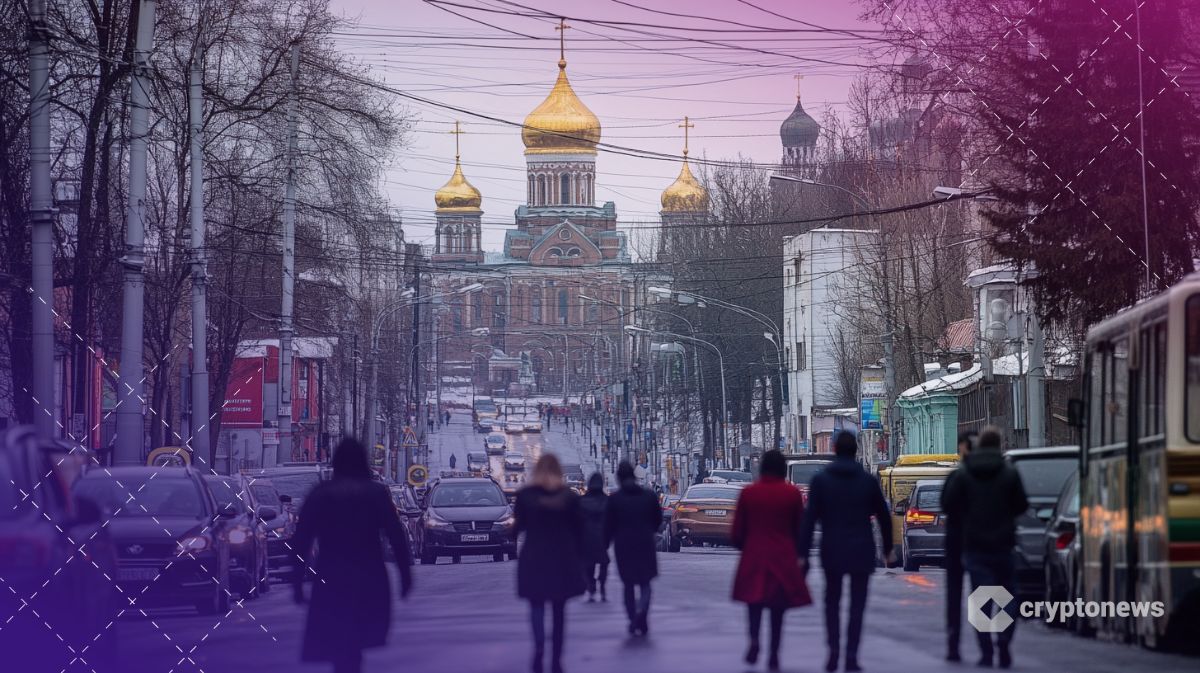EU Sanctions crypto entities for election interference, disinformation
2025/07/16 22:08

The EU has sanctioned multiple entities for using cryptocurrencies to evade restrictions, channel funds, and propagate pro‑Russian disinformation and election interference.
Disclaimer: The articles reposted on this site are sourced from public platforms and are provided for informational purposes only. They do not necessarily reflect the views of MEXC. All rights remain with the original authors. If you believe any content infringes on third-party rights, please contact service@mexc.com for removal. MEXC makes no guarantees regarding the accuracy, completeness, or timeliness of the content and is not responsible for any actions taken based on the information provided. The content does not constitute financial, legal, or other professional advice, nor should it be considered a recommendation or endorsement by MEXC.
You May Also Like

When Cryptocurrency Returns Are Poor, You Need a Plan B
By: DeRonin Compiled by: Luffy, Foresight News I started my career in cryptocurrency and I am truly grateful for what it has brought me. But recently, I came to the
Share
PANews2025/07/11 09:00

Russia’s Sberbank Seeks Green Light for Crypto Custody Amid Regulatory Push
Sberbank, Russia’s largest state-owned lender , announced its intention to offer custody services for cryptocurrency assets, according to a Reuters report on July 17. Russia's Sberbank offers custody services for Russian crypto assets https://t.co/TvWlwh3hrF https://t.co/TvWlwh3hrF — Reuters Business (@ReutersBiz) July 17, 2025 The bank’s plan reflects a growing acceptance of crypto within the country, as government institutions reconsider their earlier hardline stance. Anatoly Pronin, executive director of Sberbank’s alternative payment solutions division, revealed that proposals have already been submitted to the central bank outlining how crypto custody could be introduced under existing financial structures, Reuters reports. The proposals suggest treating digital assets similarly to traditional bank-held funds, offering both user protection and legal control. If approved, these custody services would allow tokens to be frozen upon request by law enforcement, while also reducing transaction complexity and lowering vulnerability to hacks. Geopolitical Pressures Drive Regulatory Recalibration Russia’s stance on digital currencies has been shifting in light of sanctions from Western governments tied to the conflict in Ukraine. Last year, the central bank backed legislation allowing the use of cryptocurrencies in cross-border trade, a sharp turn from its previous resistance. This pivot is seen as a way for the Russian economy to circumvent international financial restrictions. By building internal infrastructure for digital asset transactions, including custody solutions, Russian institutions are working to reduce dependence on foreign crypto firms. Gleb Zemskoy, director of blockchain development at Insight Finance, stressed the importance of local custody options, stating that no fund or serious user could operate without one, Reuters reports. He warns of the dangers of relying on international custodians, which could introduce exposure to foreign jurisdiction risks. A Domestic Custodian for a Global Market The central role of custodians in the digital finance world is becoming increasingly apparent. With the custody market currently dominated by private firms based outside of Russia, local entities like Sberbank are positioning themselves to fill that void domestically. Zemskoy describes custodians as the “backbone” of the digital economy, emphasizing the urgency of Russia developing its own infrastructure. Sberbank’s ambition is not only to safeguard clients’ tokens but to integrate crypto asset handling into the country’s broader financial network. If approved, the bank’s initiative could make it easier for businesses and consumers in Russia to conduct crypto transactions with greater trust and regulatory protection. Russian Lawmakers Pass Digital Ruble Bill Earlier this week, Russian lawmakers voted in favour of a digital ruble bill that mandates a September 2026 rollout for the CBDC. Per the state-run news agency TASS , the Duma has adopted a law on the “gradual introduction” of the digital ruble, beginning next year. Lawmakers voted in favor of the bill in its second and third readings. The bill will now pass to the Russian upper house, the Federation Council, for approval. The bill will then pass on to President Vladimir Putin, who will officially sign the bill into law. These two steps are mere formalities, however, with the law slated to come into force on September 1, 2026. This is the central bank’s new date for a nationwide rollout, following its last-gasp decision to postpone its summer 2025 CBDC launch plans.
Share
CryptoNews2025/07/18 02:07

Enlightify breaks Bitcoin-only mindset with $20m bet on CYBER tokens
Bitcoin has long been treated as the default corporate crypto holding. Enlightify’s CYBER allocation challenges that dogma, betting instead on a token designed to power decentralized AI networks. In an announcement on July 17, the Cyber Foundation said Enlightify Inc.…
Share
Crypto.news2025/07/18 02:30